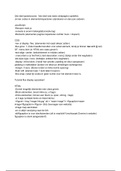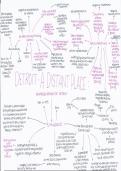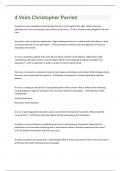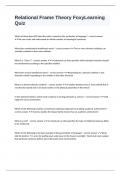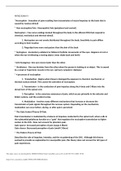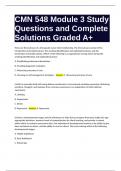IR01- Why Study IR?
IR is conventionally defined as the study of relationships and interactions
between countries, including the activities and policies of national
governments, international organizations (IOs), non-governmental
organizations (NGOs), and multinational corporations (MNCs).
IR is concerned with the nature and consequences of the impact of
states that are included in state systems
Independent nation/ state- a bordered territory, with a permanent
population, under the jurisdiction of a supreme government that is
constitutionally separate—independent—from all
foreign governments: a
sovereign state.
State system- a way of politically organizing populated territory, a
distinctive kind of territorial political organization, based on numerous
national governments that are legally independent of each other.
It stands for relations between separate human groupings which
occupy distinctive territories, are not under any higher authority or
power, and enjoy and exercise a measure of independence from each
other.
Security dilemma- states can both defend and threaten people’s security.
Balance of power- typical of realist theories (Morgenthau) that operate on
the assumption that relations of states can best be characterized as a world
in which armed states are competing rivals and periodically go to war with
each other.
Peace and progressive change- typical of liberal theories; it operates on
the assumption that international relations can best be characterized as a
world in which states cooperate with each other to maintain peace and
freedom and to pursue progressive change.
Order and justice- states have a common interest in establishing and
maintaining international order so that they can coexist and interact on a
basis of stability, certainty, and predictability.
IR STUDY GUIDE 1
, International law- to keep their treaty commitments and to observe the
rules, conventions, and customs of the international legal order.
This is the principle of pacta sunt servanda (‘agreements must be
kept’), which lies at the very core of international law.
Typical of the International Society theories that operate on the
assumption that international relations can best be characterized as a
world in which states are socially responsible actors and have a
common interest in preserving international order and promoting
international justice.
Wealth and welfare- typical of IPE theories, that operate on the assumption
that international relations can best be characterized as a fundamentally
socioeconomic world and not merely a political and military world.
History of the Modern State
In medieval times, there was no political organization, such as the sovereign
state.
The eleventh-century divide between secular and religious rulers paved the
way for it.
IR STUDY GUIDE 2
, From the middle of the seventeenth century, states were seen as the only
legitimate political systems of Europe, based on their own separate
territories, their own independent governments, and their own political
subjects.
Characteristics of the emerged state systems:
1. It consisted of adjoining states whose legitimacy and independence were
mutually recognized.
2. The recognition of states did not extend outside of the European state
system.
3. The relations of European states were subject to international law and
diplomatic practices.
4. There was a balance of power between member states, which was
intended to prevent any state from getting out of control and making a
successful bid for hegemony.
The revisionists argue that there is no solid basis in the historical evidence
for the traditional claim that the modern, post-medieval system or society of
states emerged out of the Peace of Westphalia and successive episodes,
such as the Congress of Vienna (1815) or the Peace of Paris (1919).
They are constructivists
Stages of globalization:
1. The transplantation of Western states to the Americans
2. The incorporation of non-Western states that could not be colonized
3. Anti-colonialism by the subjects of Western empires- indigenous political
leaders made claims for decolonisation and independence based on
European and American ideas of self-determination
4. The dissolution of the Soviet Union, Yugoslavia, and Czechoslovakia
Aspects of the state:
First dimension: the state as a government vs a country
Internal aspect- the state is the national government
It concerns state-society relations: how the government rules the
domestic society, the means of its power and the sources of its
IR STUDY GUIDE 3
, legitimacy, how it deals with the demands and concerns of
individuals and groups that compose that domestic society, etc.
External aspect- both the government and the domestic society make up
the state
Concerned with interstate relations: how the governments and
societies of states relate to each other and deal with each other,
what the basis of those interstate relations is, etc.
The second dimension: divides the external aspect of sovereign statehood
The formal or legal institution in its relations with other states- judicial
statehood → constitutional independence and recognition
The state as a substantial political-economic organization- the extent to
which states have developed efficient political institutions, a solid
economic basis, and a substantial degree of national unity; that is, of
popular unity and support for the state → empirical statehood
Chapter 2- IR as an Academic Subject
1. Utopian Liberalism vs. Realism
Utopian Liberalism
Academic IR developed first and most strongly in the two leading liberal-
democratic states: the United States and Great Britain
Liberal thinkers had some clear ideas and strong beliefs about how to avoid
major disasters in the future, e.g., by reforming the international system,
and also by reforming the domestic structures of autocratic countries.
Wilson believed that through a rational and intelligently designed
international organization, it should be possible to put an end to war and
achieve more or less permanent peace.
Angell argues that in modern times territorial conquest is extremely
expensive and politically divisive because it severely disrupts international
commerce; war therefore no longer serves profitable purposes.
The thinking of Wilson and Angell is based on a liberal view of human
beings and human society: human beings are rational, and when they
apply reason to international relations, they can set up organizations for
the benefit of all.
IR STUDY GUIDE 4


